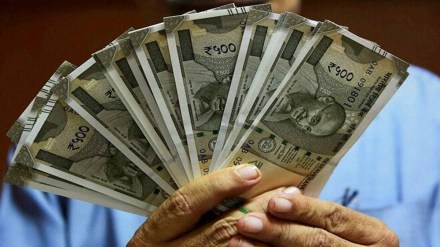Central government employees and pensioners have seen periodic revisions in their salaries and pensions through various central pay commissions since 1946, when the first pay commission was set up. Established to align government employees’ emoluments with inflation and economic changes, these commissions have been instrumental in ensuring fair compensation. This article explores the significant changes introduced by the 5th, 6th, and 7th Pay Commissions. Based on the past trends in terms of increase in salaries and pensions, especially during the last three commissions, we will discuss projected minimum and maximum basic salary and pension of government staff under the 8th Pay Commission. Before that we should know what the pay commission is and why the government forms it on a periodical basis.
Why are pay commissions set up?
Pay commissions are set up at regular intervals to review and recommend adjustments in the salaries and pensions of government employees. These central pay commissions give their recommendations on required adjustments in employees’ emoluments in an alignment with inflation and economic conditions. Pay commissions also propose measures for the welfare and financial well-being of government staff.
Also read: 8th Pay Commission: What will be the minimum salary and pension based on new fitment factor? | Here’s all you need to know
The first Pay Commission was established in January 1946, even before India’s Independence. The commission’s report was submitted in May 1947. Since then, the Indian government has formed many pay commissions, each bringing about significant revisions. At present, government employees and pensioners are receiving emoluments as per the 7th Pay Commission recommendations, implemented from January 2016.
Changes in salaries and pensions by 5th, 6th and 7th Pay Commissions:
5th Pay Commission:
Formation and implementation: The 5th Pay Commission was set up in April 1994, and its recommendations were implemented from January 1996.
Minimum Basic Salary: Rs 2,750.
Key recommendations:
Reduction of pay scales from 51 to 34.
A 30% reduction in government workforce.
Increase in gratuity ceiling from Rs 2.5 lakh to Rs 3.5 lakh.
6th Pay Commission:
Formation and Implementation: The 6th Pay Commission was established in July 2006 and its recommendations were approved in August 2008.
Minimum Basic Salary: Rs 7,000.
Fitment Factor: Initially recommended at 1.74, but increased to 1.86 by the government.
Key Recommendations:
Back pay effective from January 1, 2006.
Allowances effective from September 1, 2008.
Increase in cost of living allowance from 16% to 22%.
Also read: 8th Pay Commission Salary Structure: How much pay hike central govt employees can expect!
7th Pay Commission:
Formation and Implementation: The 7th Pay Commission was formed on February 28, 2014, and its recommendations were implemented from January 1, 2016.
Minimum Basic Salary: Rs 18,000.
Fitment Factor: 2.57.
Key Recommendations:
Minimum basic pay increased to Rs 18,000 from Rs 7,000.
Comprehensive review of pay structure, allowances, and pensions.
Introduction of a health insurance scheme for employees and pensioners.
Revision of pension formulation for those retired before January 1, 2016.
Looking Ahead: 8th Pay Commission:
The 8th Pay Commission is expected to be set up in 2026. While details are still awaited as the Centre is still to make any formal announcements on it.
Salary increases: A potential 20-35% increase in salaries, with Level 1 salaries possibly rising to Rs 34,560 and Level 18 salaries to Rs 4.8 lakh.
Improved retirement benefits: Enhanced retirement benefits for employees and pensioners.
Enhanced allowances: Adjustments to various allowances.
Projected figures with a 1.92 fitment factor:
As reports suggest, the 8th Pay Commission pay matrix is most likely to be prepared taking a fitment factor of 1.92.
Based on a fitment factor of 1.92, the minimum salary could be revised to approximately Rs 34,560, and the minimum pension might be set at around Rs 17,280 under the 8th Pay Commission.
Conclusion:
The revisions in salaries and pensions effected by each pay commission reflect the evolving needs of government employees and the economic conditions of the time. Now central government employees are eagerly anticipating the changes in their salaries under the 8th Pay Commission.
